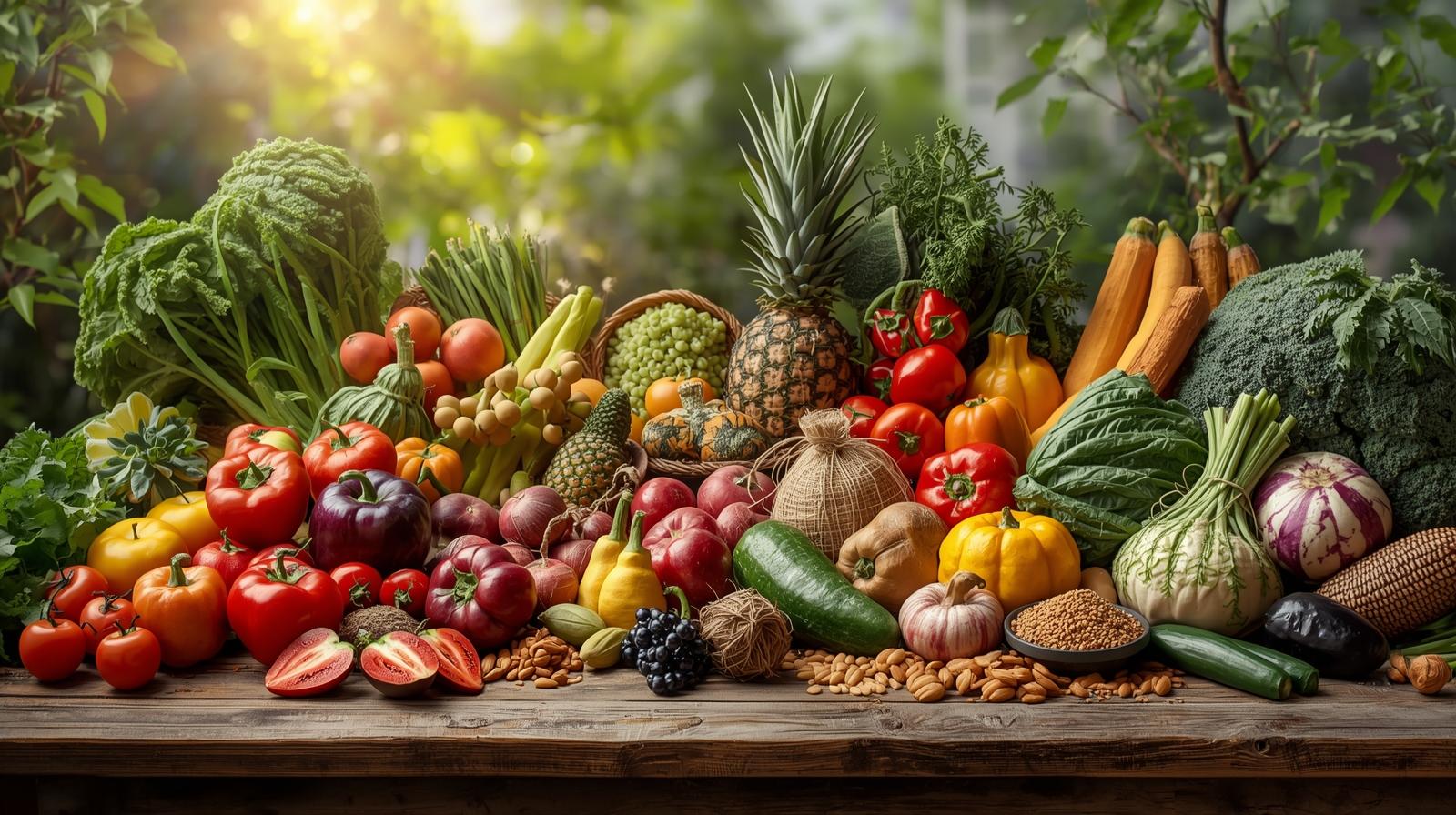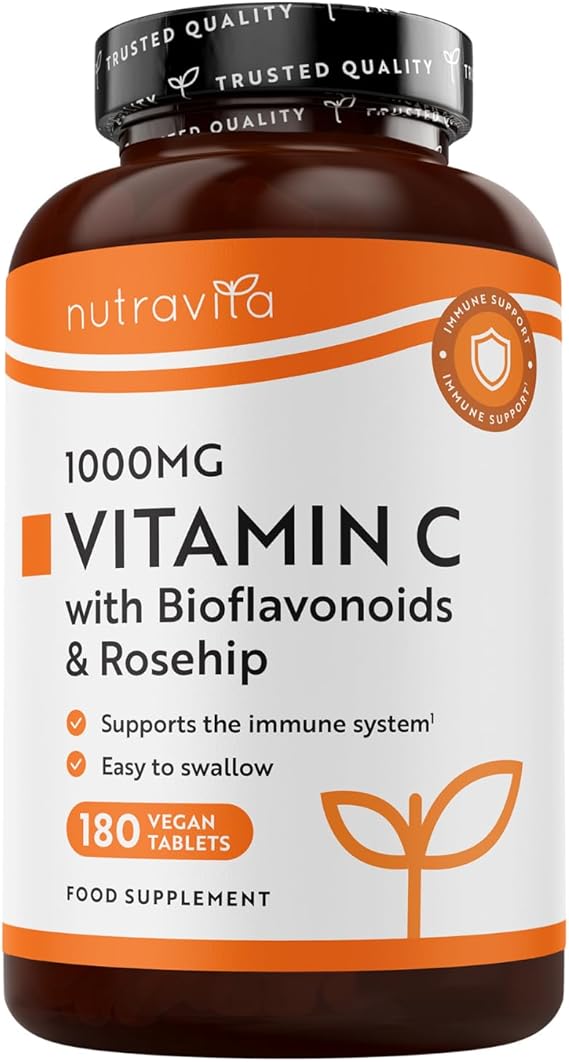Vitamin C - The Essential Guide
Vitamin C, also known as ascorbic acid, is an essential nutrient that plays a vital role in numerous bodily functions. Unlike many animals, humans cannot synthesize vitamin C, so we must obtain it from our diet. This blog post will delve into the many benefits of vitamin C, highlight the best dietary sources, and discuss the symptoms of vitamin C deficiency.
Why is Vitamin C Important?
Vitamin C is a powerful antioxidant that helps protect your body against damage from free radicals. These unstable molecules can contribute to oxidative stress, which is linked to chronic diseases like heart disease, cancer, and arthritis. Beyond its antioxidant properties, vitamin C is crucial for several key processes:
- Immune System Support: Vitamin C is well-known for its role in supporting the immune system. It helps stimulate the production and function of white blood cells, which are essential for fighting off infections.
- Collagen Synthesis: Vitamin C is required for the synthesis of collagen, a protein that provides structure to skin, bones, tendons, and ligaments. Adequate vitamin C intake is vital for wound healing and maintaining healthy skin.
- Iron Absorption: Vitamin C enhances the absorption of non-heme iron, the type of iron found in plant-based foods. This is particularly important for vegetarians and vegans who may be at higher risk of iron deficiency.
- Neurotransmitter Synthesis: Vitamin C is involved in the synthesis of certain neurotransmitters, which are chemical messengers that transmit signals between nerve cells. These neurotransmitters play a role in mood regulation and cognitive function.

Top Benefits of Vitamin C
Let's explore the benefits of Vitamin C in greater detail:
- Boosts Immunity: Vitamin C supports various cellular functions of both the innate and adaptive immune systems. It promotes the production of white blood cells like lymphocytes and phagocytes, protecting against infections. Studies show that vitamin C supplementation can reduce the duration and severity of colds, although it may not prevent them entirely.
- Reduces Risk of Chronic Diseases: As an antioxidant, vitamin C neutralizes harmful free radicals, reducing oxidative stress and inflammation. This may lower the risk of chronic diseases such as heart disease, cancer, and type 2 diabetes.
- Promotes Healthy Skin: Vitamin C is essential for collagen production, which maintains skin elasticity and firmness. It can also protect against sun damage and reduce the appearance of wrinkles and age spots. Some topical vitamin C serums are available to boost skin health.
- Enhances Iron Absorption: Vitamin C improves the absorption of non-heme iron from plant-based foods. This is important for preventing iron deficiency anemia, especially in vegetarians and vegans. Consuming vitamin C-rich foods alongside iron-rich foods can significantly increase iron absorption.
- Supports Brain Health: Vitamin C's antioxidant properties can protect against cognitive decline and age-related brain disorders. Studies have shown a link between vitamin C deficiency and impaired cognitive function. Adequate vitamin C intake may improve memory and reduce the risk of dementia.
Best Dietary Sources of Vitamin C
Fortunately, vitamin C is abundant in many fruits and vegetables. Here are some of the best dietary sources:
- Citrus Fruits: Oranges, grapefruits, lemons, and limes are excellent sources of vitamin C.
- Berries: Strawberries, blueberries, raspberries, and cranberries are packed with vitamin C and other antioxidants.
- Tropical Fruits: Guava, kiwi, mango, and papaya are also good sources of vitamin C.
- Vegetables: Broccoli, Brussels sprouts, cauliflower, and kale are cruciferous vegetables rich in vitamin C.
- Peppers: Bell peppers, especially red and yellow varieties, are exceptionally high in vitamin C.
- Leafy Greens: Spinach, kale, and other leafy greens provide a moderate amount of vitamin C.

Aim to include a variety of these foods in your diet to ensure adequate vitamin C intake. Remember that vitamin C is water-soluble, so it's best to consume these foods fresh or lightly cooked to minimize nutrient loss.
Recommended Daily Intake
The recommended daily allowance (RDA) for vitamin C varies depending on age, sex, and other factors. Personally, I would pay no or little attention to any government lead guidlines on Vitamin C.
You basically cannot overdose on it, and if you eat the right foods, you don't even usually need to supplement. Just include those foods above into your daily nutritional intake, and you will be fine.
If you are going to supplement, go for "food derived" Vitamin C and aim for 1000mg daily.
Smokers need more vitamin C because smoking increases oxidative stress and depletes vitamin C levels in the body. It's generally safe to consume vitamin C above the RDA, as it is water-soluble and excess amounts are typically excreted in the urine. However, very high doses (over 2000 mg per day) may cause gastrointestinal upset.
Vitamin C Deficiency: Symptoms and Risks
Vitamin C deficiency, also known as scurvy, is rare in developed countries due to the availability of fresh fruits and vegetables. However, it can occur in individuals with limited dietary intake, malabsorption issues, or certain medical conditions. Here are some common symptoms of vitamin C deficiency:
- Fatigue and Weakness: Persistent fatigue and weakness are early signs of vitamin C deficiency.
- Skin Problems: Scurvy can cause skin changes, such as rough, dry skin, easy bruising, and poor wound healing.
- Joint and Muscle Pain: Vitamin C deficiency can lead to joint and muscle pain due to impaired collagen synthesis.
- Bleeding Gums: Swollen, bleeding gums are a classic symptom of scurvy.
- Loose Teeth: In severe cases, vitamin C deficiency can cause teeth to loosen and eventually fall out.
- Impaired Immunity: Vitamin C deficiency weakens the immune system, increasing susceptibility to infections.

If you suspect you may be deficient in vitamin C, consult with a healthcare professional. A simple blood test can determine your vitamin C levels. Treatment typically involves increasing dietary intake of vitamin C-rich foods or taking supplements.
Vitamin C Supplements: Are They Necessary?
While it's always best to obtain nutrients from whole foods, vitamin C supplements can be a convenient way to boost your intake, especially if you have difficulty meeting your needs through diet alone. Vitamin C supplements are available in various forms, including:
- Ascorbic Acid: This is the most common and affordable form of vitamin C. It is readily absorbed by the body.
- Mineral Ascorbates: These are buffered forms of vitamin C that are less acidic and may be gentler on the stomach. Examples include sodium ascorbate and calcium ascorbate.
- Vitamin C with Bioflavonoids: Bioflavonoids are plant compounds that enhance the absorption and antioxidant effects of vitamin C.
- Liposomal Vitamin C: This form of vitamin C is encapsulated in liposomes, which may improve absorption and bioavailability.
When choosing a vitamin C supplement, look for a reputable brand that has been third-party tested for quality and purity. Follow the dosage instructions on the label or as directed by your healthcare provider. It is also important to consider your individual needs and preferences when selecting a supplement form. If you have a sensitive stomach, a buffered form like mineral ascorbate may be a better choice.
Conclusion
Vitamin C is a vital nutrient that plays a crucial role in immune function, collagen synthesis, iron absorption, and antioxidant protection. By including a variety of vitamin C-rich foods in your diet, you can reap the many health benefits of this essential nutrient. If you are unable to meet your vitamin C needs through diet alone, consider taking a supplement. However, it's always best to consult with a healthcare professional before starting any new supplement regimen. Prioritizing vitamin C intake is a simple and effective way to support your overall health and wellbeing.
This post includes affiliate links to Amazon. If you choose to buy through these links, I may earn a small commission, which helps support this blog—thank you.
Recommended Vitamin C Supplement:


